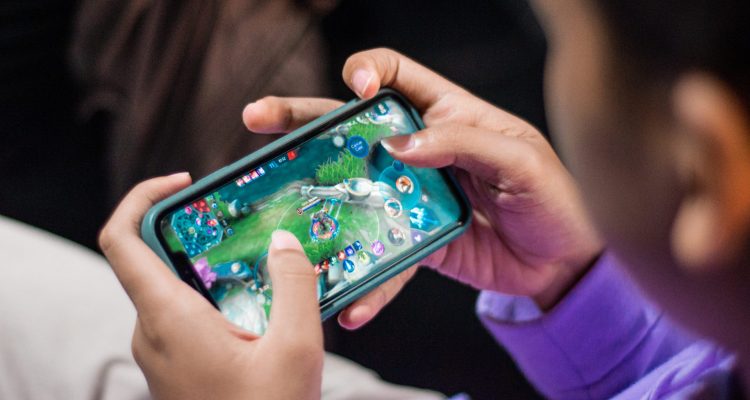The world of mobile is changing fast, with new innovations and advancements coming thick and fast. New technologies are constantly emerging to expand the scope of mobile game development company and their uses. The pace of change has been so rapid that it’s difficult for many people to keep up, especially if they’re not directly involved in the industry. If you work in a non-digital industry, such as manufacturing or construction, it can be hard to see how mobile technology could have any bearing on your day-to-day operations. But we assure you, it does! Mobile technology affects almost every business in some way or another. From manufacturers to healthcare providers , there is no avoiding the impact of mobile devices and the innovations they bring with them.
What are the most important mobile technologies?
There are so many different technologies at play in mobile devices that it’s almost impossible to keep track of them all. But there are a few that we feel are especially important and worthy of more attention. Here are the top mobile technologies to watch in the near future. – Voice recognition and natural language processing – Augmented reality (AR) and virtual reality (VR) – Artificial intelligence (AI) and machine learning – Blockchain – Co-opting the Internet of Things (IoT) We’ll explore these technologies in greater detail below, but it’s worth noting that these are by no means the only important mobile technologies. They’re just the ones we think are most likely to have a significant impact on the world of business.
Voice recognition and natural language processing
As mobile devices become more advanced, they continue to incorporate new technologies that expand their functionality. One of the most interesting new developments of late has been the incorporation of voice recognition capabilities into a wide range of devices. This is an exciting development that has the potential to transform the way people interact with their devices. It also has implications for businesses that want to offer an improved user experience. Incorporating voice recognition technology into your apps and interfaces allows you to create a more intuitive user experience. This, in turn, can increase usage and make your apps more appealing to a wider audience. Voice recognition has already begun to revolutionize the way people use their mobile devices. You see it on apps like Siri or Google Assistant that let you ask questions or give instructions verbally. You also see it in smart home devices, such as Amazon Echo, that let you control your appliances with your voice.
Augmented reality (AR) and virtual reality (VR)
Augmented and virtual reality are closely related technologies that are experiencing a surge in popularity and usage. They both involve placing computer-generated images in real-world settings. While augmented reality overlays images on top of the real world, virtual reality completely replaces the real environment with a virtual one. AR and VR technologies are mostly used in the gaming and entertainment industries right now, but they are set to make a huge impact on the business world in the near future. Augmented reality has already been put to use in the construction and engineering industries. Virtual reality is expected to be a useful tool in industries such as healthcare, education, and marketing. VR technology is also widely used in product design and development. In fact, businesses are already finding ways to incorporate AR and VR into their operations and marketing. As these technologies become more widely available, businesses will have even more options for implementation. AR and VR technologies have the potential to have a major impact on business operations. They could change the way we do everything from marketing to design and development. They could also transform the way we engage with customers and clients.
Artificial intelligence (AI) and machine learning
Ever since the computer was invented, people have wondered if the machine might one day become self-aware. Will our computers one day rise up against us and take over? Although computers have made great progress, they are still very much machines. They lack that self-awareness that we are used to seeing in living creatures. Until now. Perhaps the most exciting development in the world of mobile technology is the advent of artificial intelligence. AI has been slowly making its way into our lives over the past few years, but it is only now that we are beginning to see its true potential. AI allows computers to make decisions and solve problems in the same way that a person would. This means that computers can learn and understand new things without being explicitly programmed to do so. Machine learning is an aspect of AI that has the potential to have a huge impact on businesses. It allows computers to learn from their interactions with people and from their existing data sets. This means that computers can improve as they are used. They can get better at what they do with each interaction. They also have the potential to make businesses more efficient. Machine learning can be used in areas such as customer service, marketing, and finance.
Blockchain
The blockchain is a technology that was originally developed to underpin cryptocurrencies such as Bitcoin. But it has many potential uses that go far beyond this. The blockchain is a decentralized ledger that allows businesses to record transactions and share data with stakeholders in a secure way. Essentially, the blockchain is a record of transactions that is distributed across many computers. This means that no single computer holds the complete record. Instead, the information is split across many computers that represent an unbroken chain. This makes the blockchain extremely difficult to hack. This technology has huge potential in the business world. It can be used in supply chain management, cybersecurity, and many other areas where centralized databases are unsecure and inefficient. It could also have a huge impact on the way businesses interact with their customers.
Co-opting the Internet of Things (IoT)
The Internet of Things (IoT) refers to the growing trend of connecting everyday items such as appliances, clothing, and healthcare devices to the internet. IoT devices often have sensors that collect data about the environment and send it to a centralized server for analysis. This data can be used for many different things, such as improving efficiency in business operations or providing customers with tailored recommendations. Mobile devices have been at the forefront of this IoT revolution from the very beginning. In fact, they have been instrumental in ushering in an era of “co-operative” IoT devices. Traditional IoT devices required users to be online to access them. But mobile devices are often used when there is no internet connection. This has led to the development of “co-operative” IoT devices that work with mobile devices even when there is no internet connection. This has made IoT devices more useful in many different situations. It has also made it simpler to create IoT devices. The co-operative IoT revolution has barely begun, and it has already made a significant impact on business operations.
Conclusion
The mobile industry is constantly evolving and changing, and new technologies are emerging all the time. It can be difficult to keep up with all the latest developments and decide which ones will have the biggest impact on your business. But it’s important to try because the right mobile technologies can allow you to reach new customers and improve the way you operate. Whether you are looking to improve customer engagement, drive sales, or make your operations more efficient, there is a technology out there that can help.



